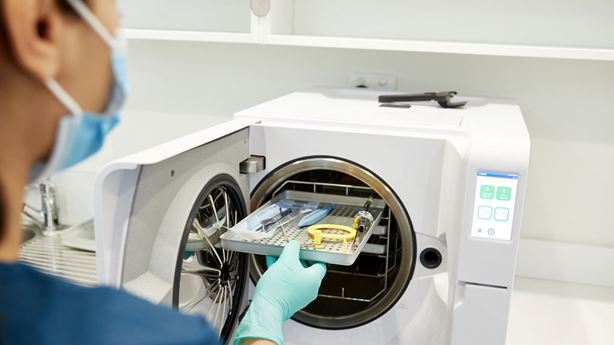How Often Should You Clean Your Mouthguard?
Dental mouthguards are basically removable oral devices which are designed to be placed into the mouth and to cover the teeth and protect them from damage and trauma.
Some people wear them to separate the top and bottom layers of the teeth as they sleep (this is known as a mouth guard), as this can help to protect the teeth against rubbing and teeth grinding during sleep, or when stressed or anxious. The official term for this is sleep bruxism.
Mouthguards are also worn when playing sports, especially physical, high contact and high impact sports such as MMA, boxing, football, rugby, hockey, wrestling, and so on. Again, these devices are worn in the mouth over the teeth to protect them from damage and injury.
Why should I clean my mouthguard?
As you’re reading about how to clean a mouthguard, you’re probably wondering why it’s so important to clean it in the first place.
Mouthguards are, surprise, surprise, worn in the mouth and over the teeth. Because they’re placed into your mouth, it’s vital that you keep them clean. Not only is the mouth the perfect breeding ground for bacteria, but also, if any bacteria or contaminants get onto your mouthguard, as soon as you place it in your mouth it will then find its way into your system.
Keeping a mouthguard clean and sterile is vital for your health and wellbeing and is basically to ensure that you don’t get sick because of it.
Tips for cleaning your mouthguard
We’ve looked at the importance of cleaning a mouthguard, but now you may be wondering about how often to clean your mouthguard, and indeed, how to clean it correctly.
Below, you’ll find some of our top mouthguard care tips including the best methods for cleaning your mouthguard:
Toothpaste
Believe it or not, but using a toothbrush and toothpaste is actually one of the most effective ways of cleaning and caring for a mouthguard.
Toothpaste helps to remove bacteria and contaminants from your mouthguard, while providing a protective layer in the process.
Simply apply a small amount of toothpaste to a soft-bristled brush and gently brush the mouthguard before rinsing away the toothpaste and leaving the guard to dry.
Let your guard dry completely
When talking about how to clean a mouthguard, it’s important to allow your mouthguard to dry completely before putting it away, or putting it in your mouth.
If you put your mouthguard away wet, the damp could cause mould and bacteria to grow on the guard which would make you very sick if you ingested it.
Hot soapy water
Give your mouth guard a deep clean with hot soapy water. When it comes to bacteria and mouthguard care in general, hot soapy water is one of the best cleaning solutions you could wish for.
The hot soapy water helps to kill bacteria and rinse away any contaminants which could allow bacteria to breed. The best part is that you can use normal dish soap. Again, use a soft-bristled brush to get into those hard-to-reach areas of your guard.
Avoid using an alcohol-based solution as this could damage your guard.
Mouthwash
Mouthwash is great for washing and cleaning a mouthguard as it is typically loaded full of anti-bacterial, antimicrobial ingredients that will clean and sterilize your mouthguard.
Simply rinse the mouthguard under cool water, place into a clean cup of warm water with a cap full of mouthwash and leave to soak for 30 – 60 minutes. After this time is up, rinse with clean water, leave to dry fully, and you’re all set.
Hydrogen peroxide and vinegar
If you’re really looking at taking your mouthguard care seriously, you can use hydrogen peroxide and vinegar. This offers an extensive clean that is guaranteed to kill germs and bacteria.
Simply rinse your mouthguard in warm water, place in a glass, cover with white vinegar and leave for 30 minutes or so. Next, remove and rinse with clean water, along with the glass as well. Now, place the guard back in the glass and this time cover it with hydrogen peroxide and leave for 30 minutes again. Remove, rinse with clean water, dry thoroughly, and hey presto!
Baking soda
There are few things which cannot be cleaned with baking soda, so not surprisingly, it’s great for mouthguards.
Baking soda helps to kill bacteria, plus it can neutralize bad odours so it can combat halitosis.
Simply take a small amount of water and baking soda, and combine to form a thick paste. Take a toothbrush, coat in the paste, and then gently scrub the mouthguard all over.
Rinse with fresh water and leave to dry.
How often should I clean my mouthguard?
Finally, before we wrap things up today, we’ll finish up by looking at how often to clean your mouthguard.
Ideally you should clean your mouthguard with at least one of the techniques listed above every single day. You can, however, get away with every few days. We recommend cleaning your mouthguard every 2 – 3 days at the bare minimum, though be sure to be thorough.



